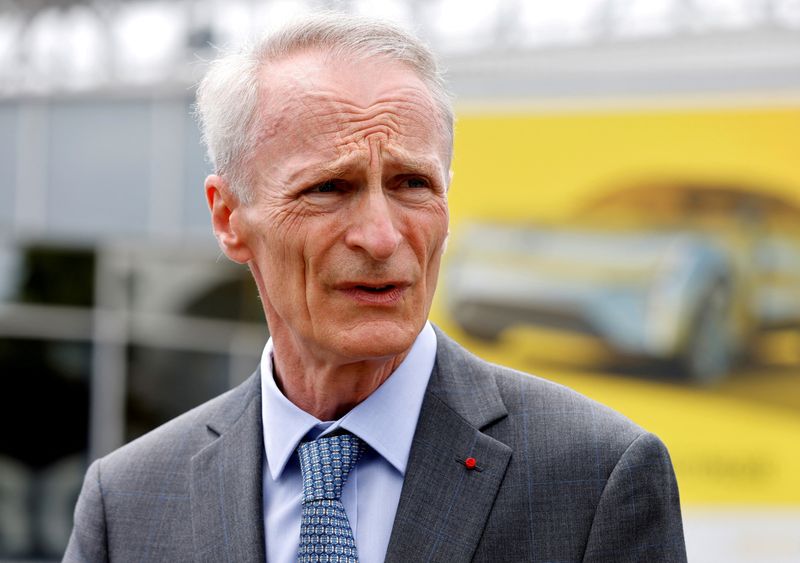‘Chinese storm’ looming over Europe’s EV sector, Renault chairman warns
2023.07.08 15:00

© Reuters. FILE PHOTO: Renault’s chairperson Jean-Dominique Senard looks on during a visit by the French President to the site of the future factory of Japan-based battery maker Envision AESC group, where Renault SA develops an electric-vehicle manufacturing hub, in
By Mathieu Rosemain
AIX-EN-PROVENCE, France (Reuters) – A “Chinese storm” is looming over Europe’s growing electric vehicle (EV) sector, Renault (EPA:) Chairman Jean-Dominique Senard told Reuters on Saturday, as Asia’s superpower dominates key raw materials to make batteries for zero emission cars.
China’s recent decision to restrict exports of two metals – gallium and germanium – used in semiconductors and EVs should raise red flags for European leaders as it shows the continent’s over-reliance on China and the need to build a costly supply chain, Senard said in an interview.
“When I talk about a Chinese storm, I’m talking about the strong pressure today related to Chinese (electric) vehicle imports into Europe,” Senard said.
“We are capable of making electric vehicles, but we are fighting to ensure the safety of our supplies,” he said, adding China’s EV industry and supply chain for raw materials resulted from years of investments that would cost billions of euros to replicate.
China’s export restrictions are escalating a technology war with the United States, potentially causing more disruption to global supply chains. Europe finds itself in the middle of the spat, compelling it to look for alternatives in the worst-case-scenario.
“If there’s a real geopolitical crisis, the damage to battery factories solely powered by products coming from outside will be considerable,” Senard warned. “That’s the issue”.
The development of alternative fuels – such as synthetic e-fuels and hydrogen – would be crucial in the event of a sudden shortage of batteries due to a dearth of raw materials, Senard said.
“As any careful manufacturer would do… we’re looking for alternatives to avoid paralyzing the country if, for example, we run out of batteries”.








